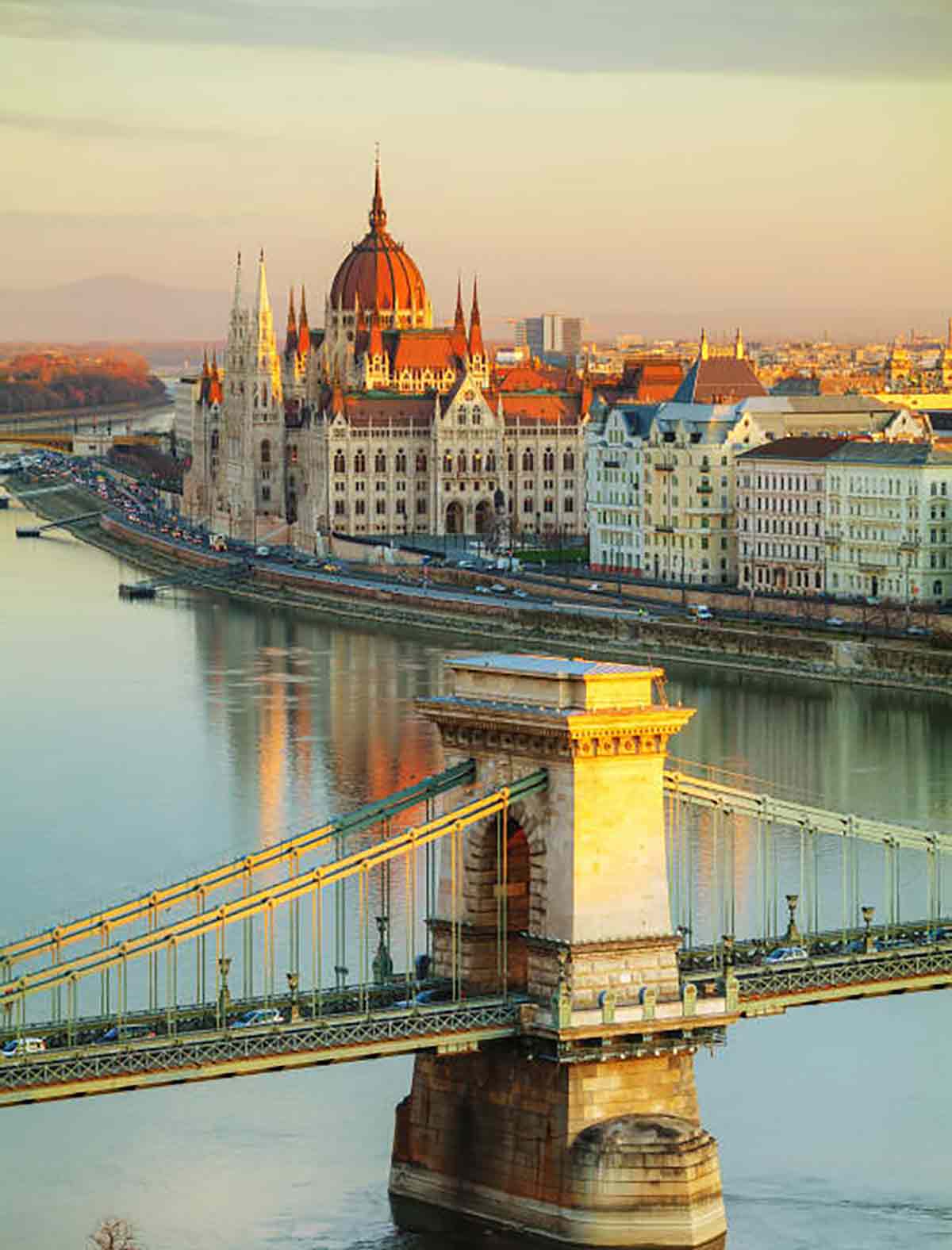Looking Forward to 2021: Politics, Travel, Fashion, Economics
The year of 2020 is almost over, so, we’re going to be looking at how a change in American president, Brexit and the pandemic will inform where sustainability might be going in 2021. Whilst also looking at new sustainable plans and policies coming into effect in 2021.
There are many different options facing politics, economics and industry giants such as aviation and fashion. We’ll asking such questions as, is government getting involved in fashion reform the way forward? Will electric cars be the new normal? And, can sustainability be achieved in a time of economic crisis?
POLITICS
The political landscape is set to change drastically in 2021, right from the off set with a new US president in January; Joe Biden has plans to undo the environmental damage caused by the Trump administration. On the 5th November, Biden tweeted, “Today, the Trump Administration officially left the Paris Climate Agreement. And in exactly 77 days, a Biden Administration will rejoin it.” This might not seem like such a massive step, it is after all putting the country back on track when it comes to sustainability rather than bounding into the future, however, it connects America with the rest of the world in a fight against climate change. Biden also aims to invest 1.7 trillion dollars over 10 years to promote clean energy technologies, with plans for 100% clean energy by 2035 and net-zero emissions by 2050. Given that America has one of the largest coal reserves in the world, that is a challenge. Some specific features include, zero-emission buses, half a million electric vehicle charging station by 2030, installing 500 million solar panels by 2025 and supporting energy sources such as hydrogen. Biden’s four year term, starting in 2021, will be putting the infrastructure in place to meet these targets. Also, he will have to propose these new plans to congress and have them passed, so, 2021 will be about making these campaign promises a more cemented commitment.
One of the main features of sustainability in the Biden administration is that the attitude is changing; climate change will be taken seriously and any progress will not be discouraged. In the fight against climate change, having the third largest country in the world - in land mass - partaking in summits and agreements is a very important symbol. In 2021 we’re seeing that restored.
So, America is rejoining The Paris Agreement, what does that mean for 2021? This agreement is a 15 year plan, started in 2015 to reduce the global temperature to 1.5 degrees Celsius, this involves a five year cycle in which, every five years countries put fourth their plans on how to reduce their emissions, known as, nationally determined contributions. The first of these meetings, since the agreement was made, was set to be hosted by UK Prime Minister, Boris Johnson, at the The Glasgow Climate Change Conference in November 2020. However, because of the pandemic, this has been moved to November 2021.
This delay, by a year, means that the pandemic will not be seen as a reason for lack of sustainable progress and if it has halted progress, a plan should be presented about how things will move forward. Also, this delay allows America to be a part of the first talks and present their own plan whilst the UK will be able to present a plan as a country outside of European Union. This delay will, in fact, allow the politics to settle and climate change take centre stage.
In January 2021 the UK will leave the European Union; another tectonic shift in the political landscape. In terms of sustainability, it has been noted that the EU had to “force” the UK to go green; in the 1970s and 80s the UK was considered the "Dirty Man of Europe". The EU environmental laws and regulations have helped shape UK’s stance on climate change and in 2008 the UK adopted the Climate Change Act, emerging as an international leader in this field.
However, before we explore Brexit, what is the EU’s plan for sustainability in 2021? In spring of 2021 the EU is launching it’s Green Deal, which aims to have no net emissions of greenhouse gases by 2050. It also focuses on features such as, biodiversity, deforestation, sustainable agri-food systems and sustainable development. As part of this, the EU is hosting a Green Week from 31st May - 4th June 2021, dedicated to their Action Plan toward a Zero Pollution Ambition. This week is an “opportunity to engage with all stakeholders and interested citizens on how we can work together to make the ambition for a zero pollution and toxic-free environment a reality.” As the EU is a union of 27 countries it’s great to see they have included a week of discussion and debate around their plans.
As for Brexit, it is estimated that 80% of the UKs environmental laws come from the EU, right now the Great Repeal Bill means that existing EU legislation is included into UK law. However, throughout 2021, once the UK leaves, these laws can be opposed, debated and changed. So, throughout 2021 we will be keeping up with what the UK decides to change about their environmental laws.

TRAVEL
The air industry has been one of the worst affected during the pandemic, speaking for the UK, the government have been paying more than 55,000 aviation employees up to 80% of their wages through the furlough scheme; £1.8 billion has been made available to support the industry, which, through the COVID Corporate Financing, now accounts for 11% of total national funding under that programme. Due to this amount of government intervention and financing some executives are seeing a new opportunity for the government to incentivise sustainability.
There is no doubt that the air industry will need further government support into 2021; the EU has announced that their provisions to ease the financial pressure on the industry will continue into 2021. So, perhaps this support could come with certain demands to reform the industry? France and Germany have already given Air France and Lufthansa incentives to choose more sustainable practise. For example, Air France agreed to reduce domestic flights by 40% in exchange for receiving 7 billion euros in emergency Coronavirus funds. Also, Lufthansa agreed to retire several louder, more polluting planes. Before 2020, the idea of governments funding private companies seemed out of the question, however, the pandemic has caused the government to offer financial support. So, as this continues into 2021, the idea of strings being attached to these funds, is not unthinkable.
However, even if that doesn’t happen, the UK government has invested 2 billion into aviation research and technology whilst starting a £300 million joint investment, Future Flight Challenge. So, whichever way governments are choosing to support the air industry, we can be quite sure they are looking for a recovery based on reform.
But maybe the recovery of the air industry still won’t match the numbers of previous years; the European commission is calling 2021 the “European Year of Rail”. Next year marks the first full year in which the rules agreed under the Fourth Railway Package will be implemented throughout the EU, transport accounts for a quarter of the EU’s greenhouse gas emissions so they are committing to rail travel. As advertised by the EU we’re expecting to see many 2021 developments, campaigns and events which focus on rail travel throughout Europe to promote trains as the “sustainable, innovative and safe mode of transport.” Not to mention, we’re expecting to see the actual use of rail travel exceed previous years.
But, one of the biggest developments for 2021, when it comes to travel, is electric cars. A European environmental lobby group estimates, that the number of electric car models will triple by 2021; with carmakers forecast to bring 92, new, fully electric models and 118 plug-in hybrid models to the market next year. There has been much speculation about if the future of cars is electric and now that statement has been confirmed with the UK’s ban on new petrol and diesel cars by 2030. The Netherlands, Norway, France, Sweden and Ireland have all announced plans for a similar fading out of petrol and diesel.
There has been a lot of support recently announced for the development of EV; UK Prime Minster, Boris Johnson, announced that the UK will “invest more than 2.8 billion pounds in electric vehicles” and will be “lacing the land with charging points and creating long-lasting batteries in UK gigafactories.” It is not clear whether the EU will allow the banning of petrol and diesel cars, although Denmark has specifically raised the question after their ban conflicted with EU laws. T&E’s clean vehicles director, Julia Poliscanova commented that “this must be Frans Timmermans’ mission if he is to turn the EU Green Deal from a dream into a reality”, we will watch as this debate continues into 2021.
Although it is estimated that electric car sales make up only 2% of the American market, Biden is trying to turn that around by giving consumers 7,500 dollars for buying an electric vehicle with aims to build 500,000 charging stations. As of 2020, it seems the race is on for governments to make their countries ready for the EV revolution. These endorsement by governments are a massive step for EV. It means electric cars can go from being a ‘trend’ to a supported infrastructure. This not only makes the psychical development possible but the main stimulus needed for the EV industry is consumer engagement, and this government backing convinces consumers that although this is a new option, it is still safe and convenient. Given the demands governments are making, car companies are being forced to hit the gas, as it were, and throughout 2021 there are many exciting car companies to keep an eye on, for example, Tesla, whose shares have risen more than 500% in 12 months. But also, many start up companies such as Fisker, Rivian and Byton. Rolling Stone even published a list of the “12 Electric cars to Look Forward to in 2021” including the Mustang Mach-E, Volvo’s Polestar 2 and the GMC Hummer EV SUT - which can all travel between 275-400 miles on a single charge.

FASHION
The fashion industry plays an important role in Europe, generating an estimated turnover of 166 billion Euros and employs 1.7 million people however, it has a negative impact on the environment. So, the EU needs to protect the industry, at this time of decline, whilst trying to reform it.
In March 2020 the EU adopted their Circular Economy Action Plan and within it announced a EU Strategy for Textiles which will be put in place in 2021. The main features of the plan are a new sustainable product framework ensuring that textile products are fit for circularity, high levels of separate collection of textile waste, which will be ensured by Member States by 2025, encourage the sorting, re-use and recycling of textiles and extend the right to repair to garments. In April 2020, The Civil Society published a paper about how the EU Strategy for Textiles should be and the right to repair is a key feature. They point out that right to repair would create jobs, prevent textile waste and deal with the issue of hazardous chemicals in garments.
Throughout 2021 we’ll see how the strategy is regulated, how it translates into reality and if there are any improvements to be made. This can also serve as a prototype or example, as to how governments can get involved in fashion industry reform. Now is the best time for government intervention; the fashion industry will need support during 2021 as the pandemic continues and then a recovery process starts. Similar to the air industry, grants, business loans or differing kinds of endorsement could be made with the demands of reform. Governments regulating fashion might seem like it could encroach on creative freedom however, for each country to achieve the needs of The Paris Agreement, the fashion industry has a big part to play, and if targets are not met governments are held accountable.
The fashion industry has not turned a corner, instead, though the pandemic, it has gained momentum for sustainable change, in 2021 it’s time that change is made a reality.

ECONOMY
The main question is, how do sustainable developments continue within a finical crisis? The term which has been appearing throughout the last quarter of 2020 is “A Green Recovery” and it’s an idea we expect to dominate the economic landscape of 2021. A Green Recovery is a notion based on economic stimulus coming from sustainable projects and it’s what many economists—based on a survey of 200—believe is the best way forward.
The EU has released a budget based on a “greener, more digital and more resilient Europe” within this budget they have committed 30% of the eu’s funds to environmental projects, which is the highest share ever of the European budget. But, we can get more of a sense of what this kind of green recovery might look like, in detail from the ten-point UK plan set out by Boris Johnson and explained, himself, in the Finical Times. Johnson’s plan includes features such as, “enough offshore capacity to power every home by 2030”, “water into energy with up to £500m of investment in hydrogen”, “plans for new nuclear power”, “planting 30,000 hectares of trees a year by 2025” and “£1bn energy innovation fund will help commercialise new low-carbon technologies.” All of these features, and more, according to Johnson, will “mobilise £12bn of government investment, and potentially three times as much from the private sector, to create and support up to 250,000 green jobs.”
This is where we find sustainable development taking place. Before these budgets were announced the sector was expected to be operating at a loss, compared to it’s previous upward trajectory. IEA, International Energy Agency, have been researching the field of sustainable development including, renewable energy, solar panels, they concluded that many projects were delayed throughout 2020 and are now set to take place in 2021, however, even with the two years combined the annual growth of the sector is set to be 10% lower than forecast. In their report, they did add that “the pandemic has the potential to change the priority of government policies and budgets, developers’ investment decisions and the availability of financing through 2025.” That is exactly what we’re starting to see, with what Johnson calls a “A Green Industrial Revolution” coming our way.
In 2021 many businesses will also release their own recovery budgets and given the support and praise big companies such as, Ben and Jerry’s and EDF Energy have shown towards Johnson’s plan we are expecting they too will include a heavy emphasis on sustainable development. Sustainable investments have become vitally important not just for the planet but for economic growth in our societies; it is short term stimulus with long lasting benefits in environment, health and quality of life.

+ Words: Caroline Louise Hamar, Luxiders Contributor




